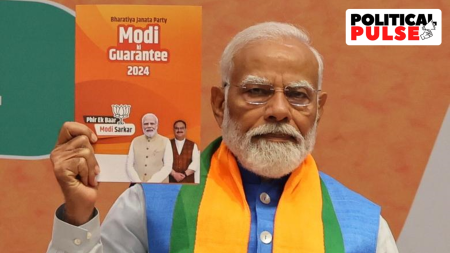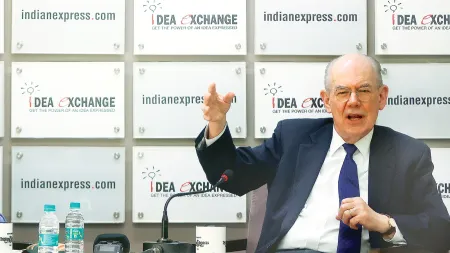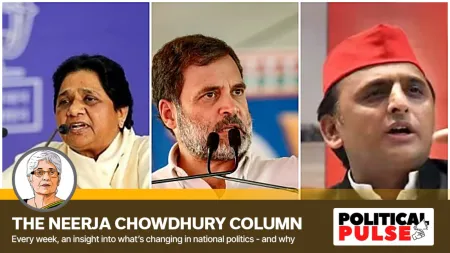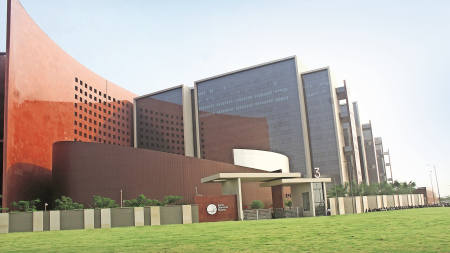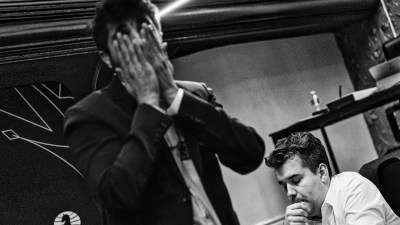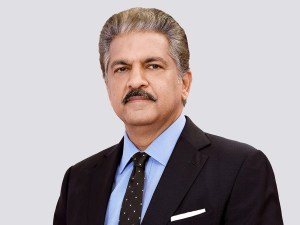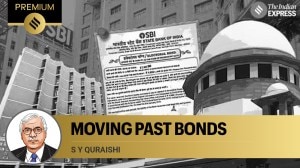- India
- International
Living with Inflammatory Bowel Disease for 10 years, 30-year-old never gave up, is completing a thesis and running a support group of patients
'Inflammatory Bowel Disease or IBD can be caused by a combination of factors such as immune system problems, genetics, environmental factors and derangement of the gut microbiome. The number of patients is increasing,' says Dr Vineet Ahuja, professor in the department of gastroenterology at AIIMS.
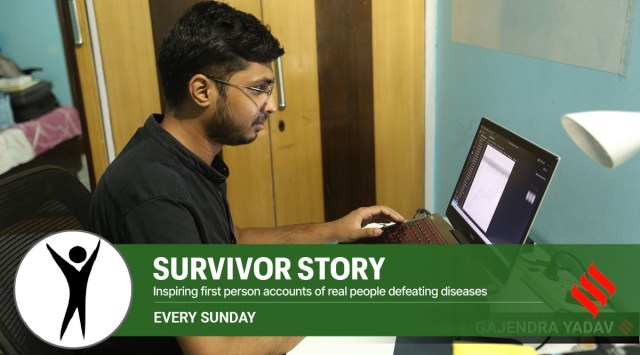 A resident of Delhi, Nikhil was pursuing his third-year degree course at the Delhi College of Engineering when he was diagnosed with Crohn’s Disease, a chronic inflammatory disease of the digestive tract, in 2013. (Express Photo by Gajendra Yadav)
A resident of Delhi, Nikhil was pursuing his third-year degree course at the Delhi College of Engineering when he was diagnosed with Crohn’s Disease, a chronic inflammatory disease of the digestive tract, in 2013. (Express Photo by Gajendra Yadav) From having suicidal thoughts following a debilitating illness to joining the Indian Institute of Science (IISc) for an MTech course in aerospace engineering and later forming a patient support group and a non-profit those suffering from Crohn’s and colitis diseases like him, 30-year-old Nikhil Jayswal has been a lone rider. Ducking misfortune has become his habit and his life-long disease a subject of his study.
A resident of Delhi, Nikhil was pursuing his four-year degree course at the Delhi College of Engineering when he was diagnosed with Crohn’s Disease, a chronic inflammatory disease of the digestive tract, in 2013. He doesn’t remember experiencing underlying symptoms but says he probably played them down in the face of marital discord between his parents. When they did separate, the trauma ended up aggravating his condition. As did concerns about repaying an education loan that he took. The family took note of him after he had simultaneous bouts of vomiting and diarrhoea, which did not stop even after visits to a physician. “In my third year of engineering, I signed up for an internship with a company in Noida. I used to live in West Delhi, so it was a long commute. I would have my lunch from the shops below the Metro station and I didn’t drink much water. After a month I developed fever and diarrhoea,” he says. Chronic fever and diarrhoea weakened Nikhil so much that he lost around 10-15 kilos in a month. That’s when he consulted a senior gastroenterologist at AIIMS, Delhi, and got diagnosed.
While Nikhil blames his poor eating habits during internship as the triggers for his condition, the reasons behind Crohn’s disease are unknown. An inflammatory bowel disease (IBD) that causes severe abdominal pain, diarrhoea, fatigue, weight loss and malnutrition, there are many theories as to why it happens, according to Dr Vineet Ahuja, professor in the department of gastroenterology at AIIMS. “It can be caused by a combination of factors such as immune system problems, genetics, environmental factors and derangement of the gut microbiome,” he says. But what worries him is the rampant increase in the number of patients coming to AIIMS due to IBD and its subtypes. “We have 7,500 patients with IBD on follow-up. We see 200 old cases and 25 new cases every week. Of these, 60 to 70 per cent would be ulcerative colitis and 30 per cent would be Crohn’s disease,” Dr Ahuja adds.
The diagnosis of Crohn’s disease shocked Nikhil as neither he nor his family had a history of major health issues. So he started taking care of himself and focused on maintaining a healthy lifestyle with a set routine for diet, work life, exercise, sleep and relaxation. Meanwhile, doctors put him on steroids and mesalamine, a medicine for IBD. After a hiatus, he fell sick again when he moved to Vadodara with a new job in 2014. This time the symptoms were far more severe, and he lost 20 kg, from 68 kg in October 2014 to 45 kg in February 2015. “I would vomit while walking and in pain while relieving myself. That is when I went back to AIIMS where doctors prescribed me the first immunosuppressive medication called Azoran,” Nikhil says. But in a few months, he became immune to it. Out of desperation, he tried all kinds of treatments, including Ayurveda. He got sicker and resigned from his job. He then visited a doctor in Vadodara who conducted a colonoscopy and told him that he needed either an immediate surgery or biologics, a therapy that targets an immune or genetic mediator of disease and plays a major role in the treatment of IBD. One dose of biologics can cost between Rs 40,000 to Rs 1,00,000. Besides, you need a TB spectrum test to rule out chances of infection during therapy. With finances a problem, he stopped visiting AIIMS. “I was not earning, and it was a big stretch for my family. My parents had separated and my mother and I had to make do on our own. I felt suicidal,” recalls Nikhil. That’s when his friends came to the rescue. They crowdfunded, raised money for his rent and took care of his medication.
They also brought him back to AIIMS. “My pain worsened, and I became weaker than I ever was. Dr Ahuja helped me raise money for biologics through crowdfunding and assistance programmes,” says Nikhil. But such was his misfortune that even biologics didn’t work, and his condition worsened. He became immobile, lying in the hospital for days every month. This time, he tried to take his life. Then doctors relied on one last resort, an ostomy surgery, which Nikhil underwent in 2017. His large intestines were removed, the small intestine was pulled out and sewed onto the skin to create a surgical opening in the abdomen for removing intestinal waste via a pouch. “Adapting to it was a challenge. I couldn’t walk. This has its own discipline. I have to empty it after every four hours and attach a new one after four to five days. I can’t stretch my body. I don’t eat a lot to avoid using the washroom.”

By then, Nikhil had hit so many troughs that he decided he would now reconcile with his condition as a lifelong affliction and live with it. Given his medical regime and care, he opted for freelance work. He got some outsourced work from overseas which meant he worked mostly at night. He tutored students and finally decided to apply for IISc as his peers convinced him that he owed it to his talent. And when he did join in 2019, he found an encouraging atmosphere. “I had to run around a bit but I did get a separate washroom,” says Nikhil. However, attending classes, given the severity of his condition, was a challenge. “One professor wanted me to drop out from one subject during the pandemic because of poor attendance,” he adds.
In 2021, he had to go back to taking biologics. He has not discontinued since and is arranging money for it through crowdfunding, support of doctors, family and friends. “Now my focus is to complete my thesis. I almost missed 60 per cent of my work due to my condition,” says Nikhil.
During the pandemic, he started a support group and India’s first non-profit for Crohn’s disease and colitis patients, the IBD Patient Support Foundation, and has connected almost 1,000 patients till now. He is now launching a campaign to get insurance for IBD diseases. “Most health insurance policies don’t cover IBD and it is often a permanent exclusion. The only exceptions are CGHS and ESI insurance schemes. Most of the expenditure is out of pocket and the most effective treatments run into lakhs every year. So either we incur life-long debt or choose sub-optimal treatment,” says Nikhil, who believes that life is all about finding ways through the curveballs.
Apr 18: Latest News
- 01
- 02
- 03
- 04
- 05








